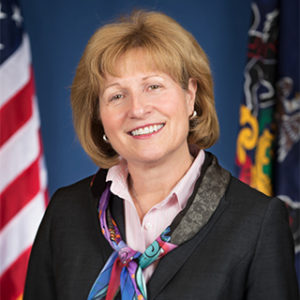A few weeks ago, I had an eye-opening Zoom meeting with Berks members of the Pennsylvania Child Care Association. For nearly an hour they told me how hard they’ve worked to keep their doors open in the face of the coronavirus, COVID-19. They struggled to pay rent and staff, scoured stores for cleaning supplies and assuaged the nerves of children who are newly afraid of their peers’ sniffles and coughs.
We need to pay more attention to childcare centers, and we need to do it now. Quality, affordable childcare is an important piece of our economic infrastructure. In fact, according to new research by the U.S. Census Bureau and Federal Reserve, around one in five of working-age adults said the reason they weren’t working was because COVID-19 disrupted their childcare arrangements. Our economic recovery from the pandemic will be hindered without reinforcing the childcare system.
So far $220 million of CARES Act funding has been allocated to childcare providers across the state. It’s a boost for sure, but for many providers it’s not enough. Since the beginning of the pandemic, more than 125 providers have permanently closed with 1,000 others at risk of doing the same.
There’s now a call on the legislature to set aside more funding to help families with school-age childcare as parents navigate virtual and hybrid-learning options. My office has heard from several of these parents. They often describe an impossible situation: Do I potentially risk my children’s health by sending them to school or do I risk my job by staying home? And those were the parents with options. The ones whose school districts mandated virtual learning then found themselves in desperate need of childcare or again risking their jobs by staying home.
On the other side of the coin, I’ve spoken with several Berks employers who are frustrated by how difficult it is to hire workers. Many manufacturers, food processors and warehouses are in full hiring mode but many of their potential employees are finding it near impossible to access and afford reliable childcare. And they need family leave policies that accommodate working parents.
That’s another issue we’re looking at on the state level. There is currently proposed legislation in the Pennsylvania Senate to establish a statewide Family and Medical Leave Insurance Program. Unlike the federal Family and Medical Leave Act (FMLA) which only guarantees unpaid time off, this legislation, “The Family Care Act,” would ensure paid leave.
It’s time we finally deal with these issues head-on. I hope employers who read this consider supporting policies like these or consider implementing family friendly policies of their own.
Childcare has always been a patchwork affair. Parents, but primarily mothers, navigate a maze of options: They rely on family members (if available), individual providers who care for kids in their homes, employer-sponsored facilities (if you’re really lucky!), or large franchised day care facilities that may offer round the clock care.
Government should not play the primary role in providing day care, but it can support a better system of care. This can be done by investing more funds in subsidies for low income families, giving working parents tax breaks to help pay for care, rewarding quality facilities to pay their workers living wages, and offering similar incentives for businesses.
I was a single mother more than 30 years ago who was lucky enough to find a good daycare. But my job often required me to work nights and weekends, so I used a series of neighbors or teenagers to babysit who weren’t always available or reliable. When my daughter was sick, I risked my job to care for her. Today’s parents face those same issues.
It’s clear that as we emerge from this pandemic our economy will be vastly different on all levels. It will not thrive without childcare. The time to develop a better, more comprehensive childcare system is now.

